I owe thanks to my agent, Natasha Fairweather of A. P. Watt, for assurance that now is the time for a book about Latin, and to my publishers, George Gibson of Walker & Company and Richard Johnson of HarperCollins, for encouragement to see it through. To Natasha I have looked for SEMINA RERVM, discussing themes, to George for the LABOR IMPROBVS of detailed criticism, to Richard for AEQVVS ANIMVS in grand strategy. My background resources have been the London Library of St James’s Square (as ever, my flexible friend), the Sackler and Bodleian libraries of Oxford, and the unexpected riches of the Hitotsubashi University Library in Kunitachi, west of Tokyo. I depend here on all I learned from Latin teachers over the 1960s and early 1970s: Michael†, Eric†, and Maurice† Bickmore, Geoffrey Allibone, James Howarth†, Jack Ind, Michael McCrum†, Robert Ogilvie†, Eric Smalman-Smith, Jasper Griffin, Anthony Kenny, Oliver Lyne†, Anna Morpurgo Davies, John Penney, Harald Reiche†, and Jochen Schindler†. Friends too over the years have injected and interjected much wit: I think especially of David W. Bradley†, Charles and Francis Montagu, Jeremy Lawrance, David Nash, Harald Haarmann, and Jonathan Lewis. My wife, Jane, and daughter, Sophia, have endured, inspired, and sweetened all my necessary absences.
HOC ILLVD EST PRAECIPVE IN COGNITIONE RERVM SALVBRE AC FRVGIFERVM, OMNIS TE EXEMPLI DOCVMENTA IN INLVSTRI POSITA MONVMENTO INTVERI; INDE TIBI TVAEQVE REI PVBLICAE QVOD IMITERE CAPIAS, INDE FOEDVM INCEPTV FOEDVM EXITV QVOD VITES.
This is what is beneficial and good for you in history, to be able to examine the record of every kind of event set down vividly. Here you can find for yourself and your country examples to follow, and here too ugly enterprises with ugly outcomes to avoid.
Livy, Ab Urbe Condita , preface
PART I A LATIN WORLD
CHAPTER 1
Ad infinitum —An Empire Lived in Latin
… HVMANITAS VOCABATVR, CVM PARS SERVITVTIS ESSET.
… called “civilization,” when it was just part of being a slave.
Tacitus, Agricola , xxi
THE HISTORY OF LATIN is the history of the development of western Europe, right up to the point when Europe made its shattering impact on the rest of the world. In fact, only seen from the perspective of Latin does Europe really show itself as a single story: nothing else was there all the way through and involved in so many aspects, not Rome, not the Empire, not the Catholic Church, not even Christianity itself.
For the people who spoke and wrote it, the language was their constant companion; learning it was the universal key for entry into their culture; and expression in it was the unchanging means for taking social action. And this relationship with Latin, for its speakers and writers, lasted for two and a half thousand years from 750 BC. There was a single tradition through those millennia, and it was expressed—almost exclusively until 1250, and predominantly and influentially for another five hundred years thereafter—in Latin. Romans’ and Europeans’ thoughts were formed in Latin; and so the history of Latin, however clearly or vaguely we may discern it, is utterly and pervasively bound up with the thinking behind the history of western Europe.
Latin, properly understood, is something like the soul of Europe’s civilization. But the European unity that the Romans achieved and organized was something very different from the consensual model of the modern European Union. It was far closer in spirit to the kind of unity that Hitler and Mussolini were aiming at. No one ever voted to join the Roman Empire, even if the empire itself was run through elected officials, and LIBERTAS remained a Roman ideal. ROMANITAS—the Roman way as such—was never something voluntarily adopted by non-Roman communities. *Conquest by a Roman army was almost always required before outsiders would come to see its virtues, and knowledge of Latin spread within a new province.
At the outset, the Latin language was something imposed on a largely unwilling populace, if arguably—in the Roman mind, and that of later generations—for their greater good. There was no sense of charm or seduction about the spread of Latin, and in this it differs from some other widespread languages: consider the pervasive image of Sanskrit as a luxuriant growth across the expanse of India and Southeast Asia, or indeed the purported attractions of French in the nineteenth century as an alluring mistress. Speakers of Latin, even the most eloquent and illustrious, saw it as a serious and overbearing vehicle for communication. In the famous words of Virgil:
| TV REGERE IMPERIO POPVLOS, ROMANE, MEMENTO |
you, Roman, mind to rule peoples at your command |
| —HAE TIBI ERVNT ARTES—PACISQVE IMPONERE MOREM |
(these arts will be yours), to impose the way of peace, |
| PARCERE SVBIECTIS ET DEBELLARE SVPERBOS |
to spare the conquered, and to battle down the proud. 1 |
EXPOLIA, “Strip him.”
The most excellent Flavius Leontius Beronicianus, governor of the Thebaid in southern Egypt in the early 400s AD, †ruled a Greek-speaking province. Greek had been the language of power there since the days of the Ptolemies more than seven centuries before, but the judicial system over which he presided was Roman. Its official records were kept in Latin, even of proceedings that actually took place largely in Greek and perhaps marginally (and through Greek interpreters) in Egyptian. The record we have, apparently verbatim, is in a mixture of Latin and Greek. Fifteen centuries later, it turned up on an Egyptian rubbish dump.
Slaves called to witness in Roman trials had always been routinely beaten, in theory as a guarantee of honesty; but on this day Beronicianus seems to have been in two minds. EXPOLIA. The governor was speaking Latin, and so the first the witness would have known of what was to happen was when his shirt was taken off him. The governor went on in Greek, “For what reason did you enter proceedings against the councillor?” remarking to the staff officer (also in Greek), “Have him beaten.” The record states that the witness was thrashed with ox sinews, and then the governor said in Greek, “Don’t beat free men.” And turning to the staff, PARCE, “Leave off.” 2
What was it like having your life run for you in Latin? Even after three centuries of Roman rule, Latin stood as a potent symbol of irresistible, and sometimes arbitrary, power, especially to those who did not know the language.
By the nature of things, we do not have many direct accounts of being on the receiving end of government administered in Latin. Our sources are writings that have survived, whether on papyrus and parchment through two millennia of recopying, or on scraps of masonry that have directly defied erosion and decay. And where Latin was dominant, Latin users largely monopolized literacy. We seek almost in vain for non-Latin attitudes to the advent of Latin.
In fact, some of the most vividly subjective statements of the impact of Roman rule and the advent of Latin come from the pen of a man who had held the highest elective office in the Roman state, the historian Cornelius Tacitus. He described the British in the second century as ready to tolerate military service, tribute, and other impositions of empire, up to but not including abuse, “being already schooled to obey, but not yet to accept slavery.” *He also articulated the anti-Roman arguments of those who backed the British queen Boudicca’s revolt, after a first generation of Roman rule: “Once we used to have one king at a time, but now we get two imposed, the legate to ravage our lifeblood, and the procurator our goods, one served by centurions, the other by slaves, all combining violence with insolence … and look at how few the invaders are, compared with our numbers.” 3
Читать дальше
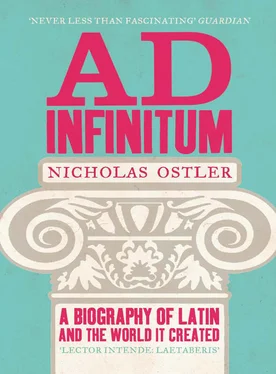

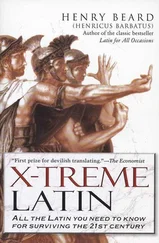


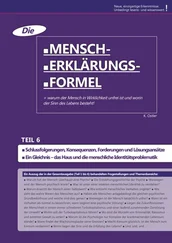
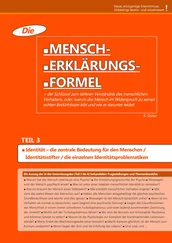
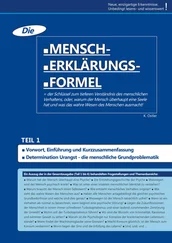
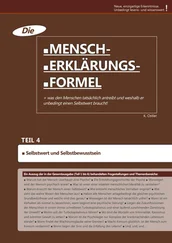
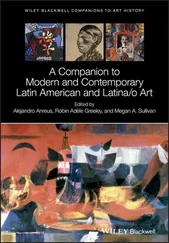

![Nicholas Timmins - The Five Giants [New Edition] - A Biography of the Welfare State](/books/701739/nicholas-timmins-the-five-giants-new-edition-a-thumb.webp)
